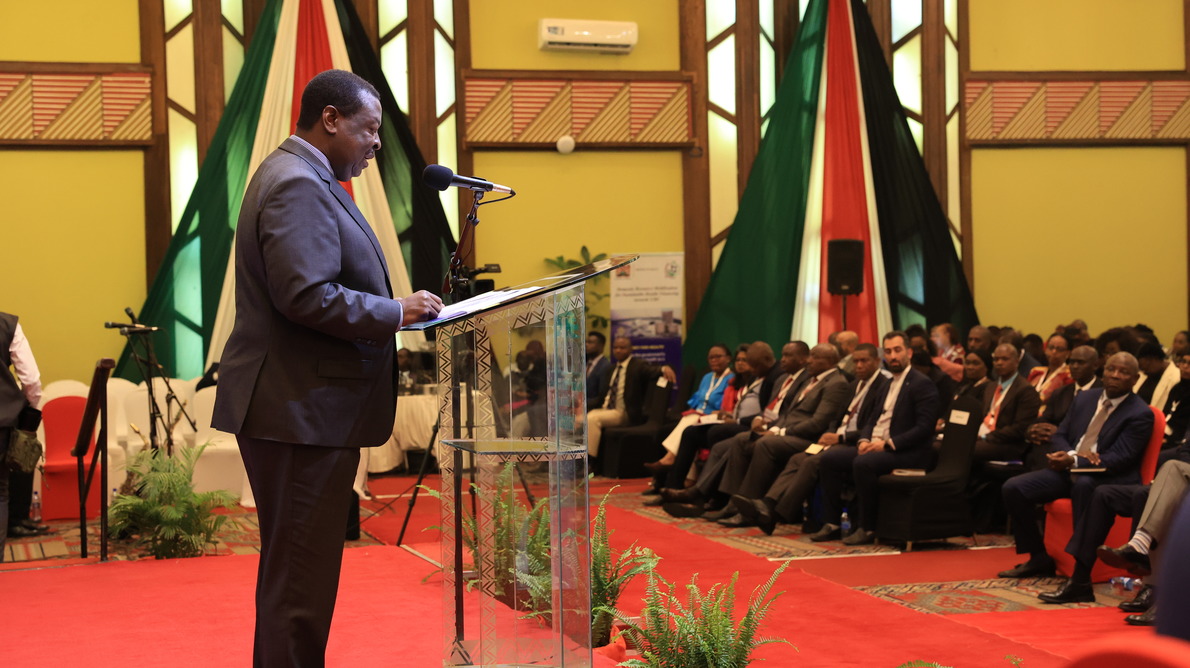Blogs

On June 15, National Treasury Cabinet Secretary Njuguna Ndung’u walked into Parliament buildings carrying Kenya’s iconic budget briefcase. The ceremonial briefcase contained a statement on how the government intends to finance and allocate resources in the financial year 2023/24.
In the Ksh. 3.6 trillion budget presented before Parliament, the Healthcare sector received Ksh.141.2 billion representing 11% of Kenya’s annual allocation. Of the allocation, Ksh.116 billion would go to the Medical Services department and Ksh.24.6 billion to Public Health Standards. In the budget, the sector received a funding cut after the National Treasury reduced its allocation by Ksh.5.6 billion compared with financial year 2022/23 when it received Ksh.146.8 billion.
During the inauguration ceremony in September 2023, the government committed to providing affordable healthcare, promising to allocate adequate resources to the sector and instituting reforms at the National Health Insurance Fund. The government committed towards enabling every Kenyan have access to the national health insurance fund and direct adequate resources towards primary healthcare including community level health facilities, level 1, 2 and 3. The move aimed at enabling Kenyans, especially the poor, get access to health services without worrying about the cost.
The 2001 Abuja Declaration
When Kenya joined other African Union member states in Abuja in April 2001, the country committed to allocating 15% of budgets to health in a given financial year. The Abuja Declaration became a rallying call to mobilize more resources for the health sector.
The Declaration aimed at delivering increased, sustained and more impactful financing for health. The commitment was touted as a breath of fresh air to the sector that for long had been on its deathbed.
Nonetheless, more than 2 decades later, Kenya is still on the long list of African nations that are yet to meet the target of allocating 15% of their budget to the healthcare sector. As a result of underfunding, citizens still struggle to get access to quality, timely and affordable healthcare due to their inability to keep up with the out-of-pocket payments.
Advance Domestic Health Financing project
To this end, African Institute for Development Policy (AFIDEP) is implementing a 3-year project dubbed “Advance Domestic Health Financing (ADHF)” that aims at increasing and efficient utilization of domestic health financing with a focus on PHC and women’s and girls’ health.
The project works with the government of Kenya by supporting the generation and translation of evidence to inform decisions on the increased and efficient use of health resources, strengthen advocacy and accountability for increased domestic financing for health and improved efficiency. It also provides technical assistance to government to stimulate action and improved accountability; provide capacity development for increased domestic financing and efficiency in the use of health allocations.
The primary outcome of the project is “increased salience of health financing on the domestic economic recovery agendas with a focus on PHC, girls’ and women’s health”, which will be achieved through the following:
- Increased use of evidence in decision-making on allocation and utilization of domestic health financing
- Strengthened generation of new champions from the public and non-state actors to promote girls’ and women’s health
- Strengthened south-to-south cooperation and political will for early adoption of effective health policies and programs
So far AFIDEP, through the ADHF project, provided technical support to county governments to better understand the Africa Leadership Meeting commitments in the health sector and develop a position paper that was presented at the dialogue. The evidence generated by the project informed the county’s position paper on domestic health.
Kenya’s national dialogue on domestic health financing
In her study ‘Universal health care coverage: healthcare financing and access to health care services in Kenya’, Rose Mwaambi’s (2017) argues that families that have languished in poverty because of exorbitant medical costs. Others have forgone the need to seek healthcare services, putting lives at risk. Vulnerable populations, like those living in informal settlements, the elderly, women and girls have borne the greatest brunt despite several commitments and political pledges.
Following the Kenya’s High-Level Dialogue on Domestic Health Financing, it will be important for the convening to result in commensurate benefit to citizens. The position paper on domestic health financing developed during the event and the recommendations towards improving domestic health financing are the immediately available implementation tools to guide the process.
Kenyans deserve access to healthcare services without worrying about the cost. The National High-Level Dialogue happened; it is time to move beyond rhetoric to action.
This article was first published by Royal Media Services and The Star Newspaper in Kenya

